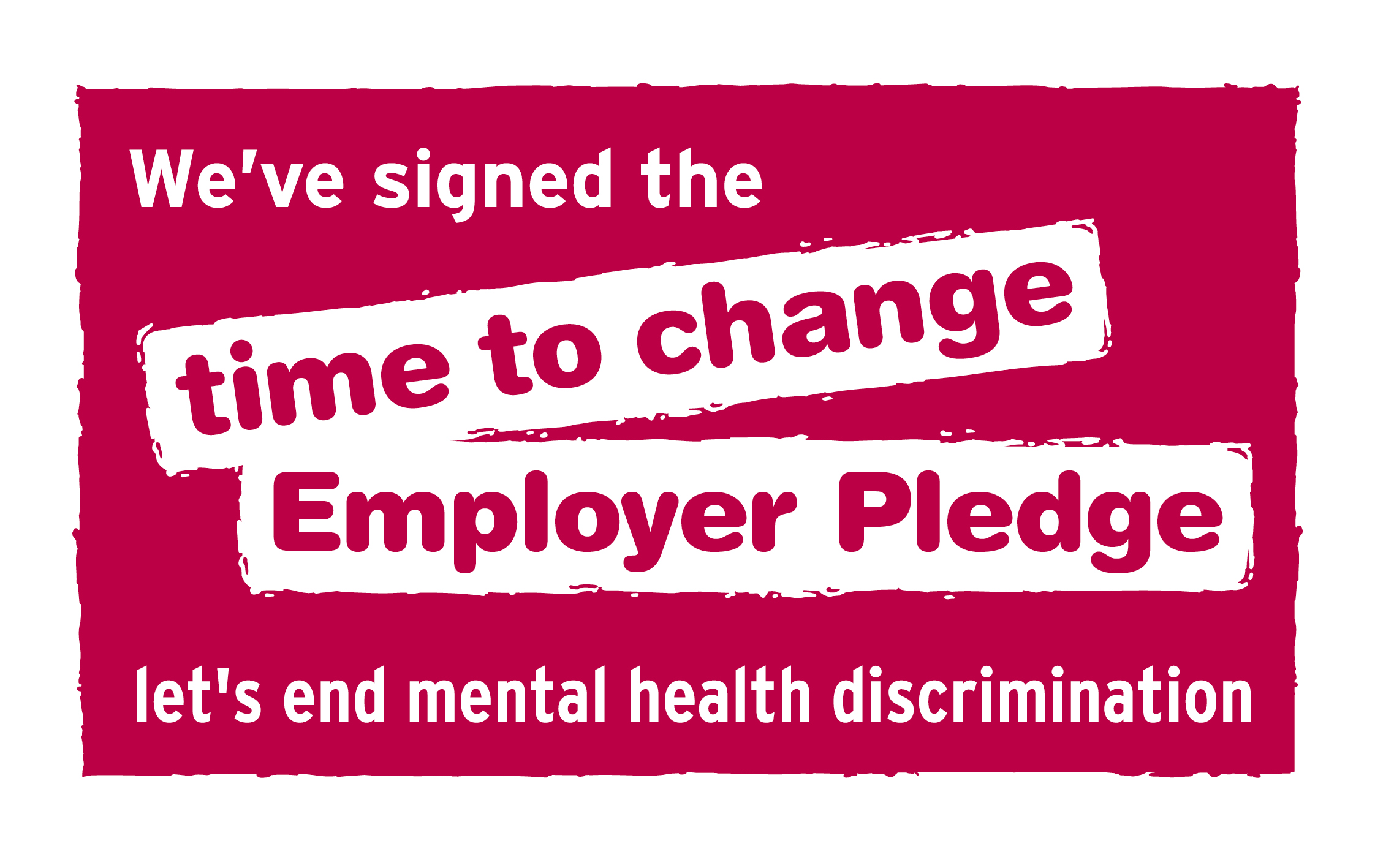All posts by Editor

The workplace is more just than a place of business. It should be a community that supports its employees and promotes a culture where people can be their most authentic selves. That’s an ideal Experian very much understands, believes in and strives for. And because of that commitment, we’re proud to be recognized by Great Place to Work as one of the best workplaces in the country. We’ve built a workplace that encourages collaboration, creates constant innovation and supports diversity. We greatly appreciate the hard work our employees have invested to help consumers, clients and our local communities. And it’s important that we continue to support that great work. Offering health and family resources, promoting diversity programs, and carrying out employee-wellness policies are just a handful of ways Experian has helped to foster a supportive work culture for our employees. Our goal is to create a workplace where people feel accepted and their work is validated so that they can continue to perform at the very highest level. A supportive work culture contributes to a positive work experience and employee motivation. In the Great Place to Work survey completed by about 2,000 U.S. based employees, 96% reported having great pride working at Experian and 95% believe the company has a great atmosphere. Experian’s dedication to their employees has not gone unrecognized. Forbes Magazine placed Experian in the Top 100 list of the “World’s Most Innovative Companies” for the fifth year in a row, and The Orange County Register named Experian a top workplace in 2017 for the fifth consecutive year. Experian has also been recognized for its commitment to diversity by the Advancing Women in Technology organization and the Grace Hopper Leadership Index. These accolades reflect the company’s workplace culture as an environment of employee growth and success. Company success starts with the success of our employees. Building an environment where employees feel supported, challenged, and valued is a top priority for Experian. We are proud of the hard work our employees have dedicated to helping our communities and we remain committed to supporting their success.

Digital transformation is dramatically changing the way consumers and businesses interact. E-commerce and social media are setting the standards for digital experiences. The advance of fintech is driving competition. All while fraud reaches an all-time high, prompting an ever-stringent regulatory framework. This confluence of emerging technologies and intense competition adds even more pressure to grow business faster. In such a scenario, growth is fueled by acquiring more customers – those with whom you can build lasting, valuable relationships over time. However, traditional approaches for customer acquisition no longer suffice. As a business leader, how do you tackle these challenges? What can you do to attract and acquire new customers? To help answer these questions, we commissioned Forrester Consulting to survey over 900 key decision makers across industries. What we found is that getting actionable insights from complex data sources to make consistent, precise decisions is still a major challenge. The majority of executives also indicated that not having a single customer view had a direct impact on profitability. They struggle to make accurate decisions that are both meaningful for consumers and profitable for business. To overcome these challenges and realize their strategic priorities, businesses of all sizes are increasing their investment in advanced analytics and decision services. We understand that the current market environment can be daunting. But with challenges come new opportunities. We can help you modernise your digital decisioning approach to enable precise and profitable lending decisions across the life cycle. Using a unique blend of best in class data, advanced analytics and digital decision strategies you will know your customer better. As a result, you can, deliver the experiences they demand and make lending decisions with less risk. Download the executive summary of our Global Decisioning Report 2018 and discover how businesses of all sizes are leveraging data, advanced analytics and digital decisioning to better serve customers and future-proof growth.

We’re committed to creating a better tomorrow for consumers, clients, our people and our communities. Experian enables life’s biggest moments and ambitions through the confident use of data. We’re unlocking the power of this data to help people access the essentials they need to fulfil their life ambitions. As the world’s largest credit bureau operator, we have an important role to play in enabling access to finance for millions of people who could otherwise be excluded from mainstream credit and services. We help people prove who they are and build a strong financial track record. Our data and analytics also gives lenders – our clients – the information they need to make fairer, faster decisions for people who are applying for credit. We deliver our purpose through our core business activities, our social innovation products and solutions, and our corporate responsibility (CR) programme. One of these initiatives is the annual One Young World competition. One Young World was founded in 2009 with the intent of bringing together young talent from around the world who are passionate about creating social change to address the most pressing issues the world faces. For the sixth year, Experian is proud to support One Young World and every year, we send five ambassadors, one from each of our regions, to attend the summit. To become a One Young World Experian ambassador, employees were asked to submit a proposal for a new product, partnership or initiative that supports our brand purpose of Creating a Better Tomorrow. The winning submissions, one from each region, were selected to become ambassadors. Over the coming months, they will work with employees across the organisation to bring their ideas to fruition. Meet the five Experian ambassadors we will be sending to the summit in October and the projects they will be driving throughout the year to create a better tomorrow. Be sure to follow @Experian on Twitter as we’ll be posting live updates from the event in October! Jessica Childs Jessica works in the Experian Marketing Services - Product Team in North America. She has worked at Experian for almost two and a half years. Last October, she went to Puerto Rico and the Virgin Islands to help people upended by the hurricanes. This experience inspired her to think about how Experian can use data to help people who are at the highest financial risk after natural disasters. Her project is made up of two parts: preparing for a disaster and understanding the financial risks posed by natural disasters; and disaster recovery which involves providing tools and resources to be successful after a natural disaster. “I am so excited to be selected as one of Experian’s 2018 One Young World Ambassadors and to continue my work that I started almost a year ago to help victims of natural disasters who are at the highest financial risk. The amount of natural disasters continues to increase year-over-year and while there has been an incredible outpouring of volunteers and support, there is always more to be done to not only educate those at risk, but also identify victims and help mitigate the inevitable financial repercussions.” Tanya Kostadinova Tanya is part of Decision Analytics, based in Bulgaria. She has worked at Experian for a year. Early this year, Tanya participated in a giving back day, organised by the Experian CSR team in Bulgaria, to paint houses for orphaned children and children in foster care. Inspired by what she saw, her idea involves creating an application for these children to give them the best start in life. The application would include information about their labour and healthcare rights, financial advice, advice on how to find a job, and this information will be presented in simple videos and easy-to-follow quizzes. “I am very happy and excited to be working on my project. I believe this idea will increase financial education and will help these vulnerable groups of people. In this way, we will create a better tomorrow not only for them but for all of us as society.” Larissa Alfino Larissa is part of our Internal Communications team based in Brazil and has been at Experian for a year. Larissa’s project is called Open Windows, it’s a global project aimed at promoting socioeconomic empowerment for refugees by breaking down social barriers, providing essential advice and helping them to gain access to credit and social services. This information would be served through an app allied with a network of partnership with financial and social institutions for a healthy social integration. “I am honoured to have the opportunity to be part of Experian’s One Young World Ambassadors and connect with other young leaders to create a better tomorrow. Many refugees are living extremely tough lives and Open Windows would be a simple and affordable way to help financially empower them.” Laura Thomas Laura is part of our Community Involvement team in the UK&I and has worked at Experian for almost 18 months. It’s predicted that there are over 40 million people trapped in modern slavery across the globe and Laura’s idea focuses on how Experian can help find and support these people. The projects aim is to develop the Experian Modern Slavery Assistance Programme – a collection of products that could be used in partnership with anti-slavery charities to identify people being kept in slavery and help rebuild the financial identities of those freed from slavery. “I am so pleased and excited to have been selected as one of Experian’s One Young World Ambassadors for 2018. It’s an amazing feeling to be chosen and I’m eagerly anticipating all that the summit has to offer.” Jasmine Rodil Jasmine is a Product Management Associate in the Credit Services Product Management team, based in Sydney, and has worked with the company for three months. An estimated 39 million people living in India are pushed into poverty each year because of healthcare expenses (a figure that is expected to rise) and Jasmine wants to do something about it. Her vision is to create a Health and Wellness indicator to improve a person’s ability to afford and access healthcare in India. The project would involve using data to look at the patient’s journey to access healthcare and the issues they face and suggest actions to gain access to quality healthcare and health insurance. “I am not only grateful to have been selected as one of Experian’s 2018 One Young World Ambassadors but I am proud to be amongst such a talented and amazing cohort of people with the same passion as myself, to drive change.” Our Ambassadors are currently collating their top takeaways on this year’s One Young World summit in the Netherlands – we’ll be updating this blog with those insights very soon so make sure you come back to have a read about their experience.

The following is written by Alison Sharp, Experian. Mental illness affects thousands of people in the UK, their friends, families and work colleagues. In fact, one in four of us will be affected by mental health issues at some stage of our lives. It's hard enough to experience mental health problems, without having to face the judgement, shame and isolation that often surrounds it. Today is World Mental Health Day, an opportunity for us, and others, to help raise awareness of mental health issues. However, our work to change the way people think and act about mental health problems doesn’t stop here. I am proud that our MD, Charles Butterworth, signed the Time to Change pledge last month, to help bring an end to mental health discrimination and show our commitment to supporting mental health awareness. Signing the pledge marks the beginning of a shift to make sure well-being and mental health support becomes the norm for us. I believe that the workplace should be an environment where everyone can thrive, no matter who they are. Experian joins the wide movement of more than 800 organisations that have signed the Time to Change pledge, including E.ON, British Gas, Ernst & Young, Transport for London, Royal Mail, Barclays, Shell, Pepsico, the Church of England, Sunday Mirror, Marks and Spencer, WH Smiths and many NHS trusts, universities, and local authorities. At Experian, we are dedicated to making colleagues feel more support and connected to the help we have, as and when they need it. I truly believe that mental health is something that shouldn’t be brushed off or pushed aside and I hope that if you are suffering, or know someone that is, that you have the courage to reach out for support because after all, it is OK to not be OK.

Working at Experian I am constantly amazed by the many innovative ways we work with data, to find new and exciting solutions with our partners. If we can harness the power of data, and derive real value from it, it has the potential to make hugely positive changes to the way we all live and work. And there’s no doubt that organisations of all shapes and sizes are stepping up to meet the challenge, investing in technology and insight to move with the times. With that in mind, I am delighted to be able to announce the finalists for Experian’s inaugural ‘Data Excellence’ award, part of this year’s Lloyds Bank National Business Awards. This award is the first of its kind, and was designed by us to recognise organisations that are pushing the boundaries in this space, creating opportunities for people, businesses and society in the process. We’ve had some great entries and the final shortlist features some of the finest examples of those working at the forefront of data and analytics. It’s a diverse and dynamic group. Data, innovation and technology has the power to change the world for the better and there’s no better way to demonstrate this than through real-life examples. The award shortlist showcases this perfectly. All our finalists have demonstrated the capacity to use data-driven solutions to not only deliver better outcomes for their customers, but embrace the opportunities presented by an ever-changing data landscape. So, who made the final shortlist? Center Parcs Cleveland Police Minicabit Principality Building Society SyndicateRoom Validis Zurich Insurance The judges now face the difficult task of selecting a winner, someone who truly personifies data excellence. At Experian, we pride ourselves on our culture of continuous innovation, that’s why we are so excited to celebrate the UK’s most ‘data excellent’ companies at this year’s National Business Awards. I’d like to wish all the finalist the very best of luck, To find out more, you can visit the National Business Awards website.

The world in 2018 is defined by data. Vast quantities of information flow through our lives like threads across an elaborate tapestry. On a micro level, these threads bind the business world together. But they also come together to weave a picture of the economy that is colourful, detailed, and uniquely fascinating. At Experian, we process more than 1.5 billion records per year, making us specialists in the processing and understanding of this data - and in making sure it is used for the benefit of consumers and businesses. To share our unique perspective, we’ve created our first ever Spending Power Index. The index looks at the UK’s income and spending habits, including both a detailed view of the present, and insight into longer term trends and the nation’s changing preferences. Giving businesses the bigger picture Stepping back from day-to-day business to look at the whole economy is a chance to identify new opportunities and work out the best ways of adapting to new challenges. The insights we’re providing through the Spending Power Index are designed to fuel that process by offering a view of existing and emerging trends across all demographic segments of the UK economy. What is the Spending Power Index? We’ve defined ‘Spending Power’ as a combination of key factors: Average income growth over time Levels of spending for one demographic group when compared to another Levels of spending as a proportion of incomes These combined factors reveal a wealth of hidden information about income and spending. All these insights have been drawn from Experian’s modelled data using secondary sources such as our ‘Financial Strategy Segmentation’ (FSS) tool. The data for this comes from a range of publicly and commercially available sources, such as the edited Electoral Roll, the UK Census and permission-based market research data taken, for example, from the lifestyle questionnaires many of us complete. New insights and confirming market trends Some of the insights revealed by the index have been surprising, while others fit into social trends that are already well understood. We found some areas of significant shift, such as the movement away from owning possessions and towards spending on life experiences. But we also confirmed some new and fascinating trends such as the emergence of Generation X’s forty somethings as the biggest earners and spenders in the UK economy. Find out more by reading the full Spending Power Index report here.

In our increasingly digital world, there’s a growing expectation among consumers to only receive personal and relevant content from brands.

I’m delighted to confirm the launch of Experian Analytics on Demand in the UK. Following a highly successful launch in the US, it will be available to businesses across the UK and EMEA regions this Autumn. Ascend is an integral part of the suite of market-leading Experian innovations that we’re bringing to market over coming months, all of which will accelerate the ability of our UK clients to harness the full potential of big data. It helps businesses of all shapes and sizes analyse vast volumes of information faster, more effectively, and with deeper insight than ever before. Ascend puts a new suite of data tools in the hands of in-house analytical teams, allowing them to build their own predictive models to develop business strategies and make real-time decisions – ultimately supporting their abilities to bring better services to market more quickly and with better results. The digital transformation of our marketplace has meant that customers are constantly demanding a faster, more responsive service and that has put increasing pressure on businesses. Our research has found that only one in three businesses are employing advanced analytics technologies to develop a deeper, more meaningful understanding of their data. Just 29% currently combine both traditional and non-traditional data sources to gather more insight. While, two in five businesses still rely on instinct and subjective opinion to make decisions. Ascend harnesses the power of open-source technology, combining it with Machine Learning and Artificial Intelligence to help businesses unlock insights and take decisive actions in the moments that matter. Bringing unique scale, speed and intelligence that deliver the best results for both businesses and our customers. It’s not simply about changing the way you manage your data; it’s about modernising the way you manage your business. This is a very exciting time for our industry and I’m looking forward to working with both our existing partners and new clients to demonstrate the many opportunities that this new platform can bring. For an early view of the platform, please follow the link here to register your interest.

We often talk about the balance between customer security and convenience, but rarely do businesses track the impact of identifying customers and managing fraud risks as two sides of the same coin. According to our recent Global Fraud and Identity Report, 84 percent of business believe if they were certain about a customer’s identity, the need for risk mitigation would be reduced. Being able to better identify our customers should be at the crux of all our campaigns. Simply put, the faster and better you recognize your customers, the faster and better you recognize fraud. And we are not alone. We feel the industry agrees with us. Two of the world’s leading research firms, Forrester and Gartner, both recently released reports regarding the state of identity, and we are thrilled to have been recognized in both. The Forrester report, “Top Trends Shaping Identity Verification (IDV) in 2018,” which was authored by analysts Andras Cser and Merrit Maxim, and published in March 2018, discusses the importance of easy-to-use identity verification tools and the top trends shaping identity verification. Experian was cited as the most used vendor for identity verification based on a survey of global network security decision makers. The report also shared an example where a North American bank improved its identity theft detection rate by 15 percent by using Experian’s identity verification services. We were also included in Gartner’s April 2018 Market Guide for Identity Proofing and Corroboration, which helps companies understand the value of identity when it comes to protecting customers and revenue. Experian was one of only three vendors that met all the capabilities criteria recommend by Gartner. The guide, authored by Ant Allan, Jonathan Care, Dorothy Luong and Tricia Phillips, also points out several key findings regarding identity proofing and corroboration. Just recently, Experian was named one of the top 100 most innovative companies in the world by Forbes for the fifth consecutive year, and this is icing on the cake. We are thrilled to be included in these reports and are committed to helping businesses provide a seamless identity verification process with accuracy and simplicity, and one that doesn’t negatively impact the customer journey. Ultimately, investing time and resources to develop the best tools for identity verification goes a long way. Not only will your business leaders feel more confident in your organization’s ability to detect and prevent fraud, it’ll also save your business the time and money that you would spend on eliminating fraud after it happens. All our fraud and identity services are available through our award-winning Experian CrossCore platform, the industry’s first open platform for fraud and identity services. Gartner Disclaimer Gartner does not endorse any vendor, product or service depicted in its research publications, and does not advise technology users to select only those vendors with the highest ratings or other designation. Gartner research publications consist of the opinions of Gartner's research organization and should not be construed as statements of fact. Gartner disclaims all warranties, expressed or implied, with respect to this research, including any warranties of merchantability or fitness for a particular purpose.